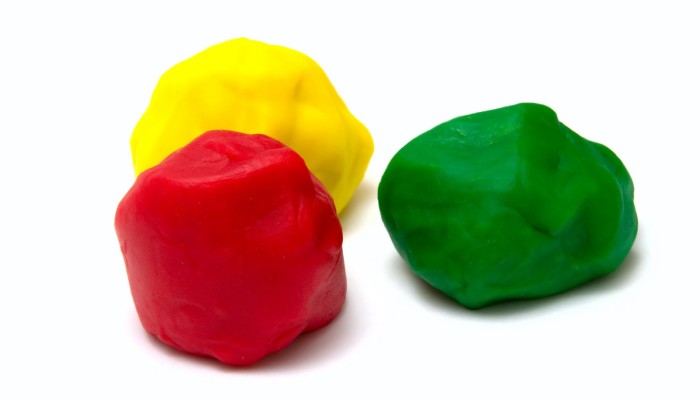Few smells can transport someone back to childhood like the distinctive scent of opening a can of Play-Doh. The unique fragrance, in use since 1955, is a clear signal that you are about to play with the official Hasbro modeling clay. After more than 60 years of production, Hasbro is now taking steps to make sure that the scent remains a clear indication that you have official Play-Doh and not some other imitator. That’s why Hasbro’s Trademark Attorneys recently filed for federal trademark protection on the Play-Doh smell.
While scents can be extremely distinctive and even act as source indicators, they aren’t often registered as trademarks. Coca-Cola has a unique taste, but is not typically associated with a certain smell. Apple products have a distinct look, but not a distinctive Apple smell. However, a few companies have received trademark registrations for distinctive scents. For example, Verizon has a trademark registration on a flowery, musk scent that it disseminates inside of its stores. A ukulele manufacturer also received a trademark registration on a piña colada scent it infused into its ukuleles. In fact there are currently eleven trademark registrations for scents.
Like these others, Play-Doh has, according to Hasbro, a unique smell and consumers recognize that scent as the Play-Doh scent. In Hasbro’s trademark application, it describes the scent as a unique scent formed through the combination of a sweet, slightly musky, vanilla-like fragrance, with slight overtones of cherry, and the natural smell of salted, wheat-based dough. It doesn’t sounds like good cologne, but it works for Play-Doh.
Hasbro’s trademark registration application includes a claim that the Play-Doh smell has become distinctive through long continuous use. The actual language used is:
“The mark has become distinctive of the goods/services through the applicant’s substantially exclusive and continuous use of the mark in commerce that the U.S. Congress may lawfully regulate for at least the five years immediately before the date of this statement.”
If Play-Doh smells the same since its inception, then five years would be an understatement. Play-Doh has been around since 1955 and it is likely that it has established common law trademark rights most of its distinct product source indicators. While scent wouldn’t typically be a source indicator for most goods, scent can be powerful and evoke memories. The scent of Play-Doh has been talked about in some circles for many years. So in practice, Hasbro may have a good argument that it has common law trademark rights in the scent. Common law trademark rights are helpful, but there are many advantages to receiving federal trademark protection. These include a presumption of validity and the ability to sue in federal court.
So Hasbro is wise to seek registration. Hasbro is taking the next step in protecting its brand and preventing others from capitalizing on its built- up equity by pursuing a federal trademark registration on its unique scent. This will provide Hasbro legal presumptions extending beyond its common law rights. This is particularly important when the trademark to be protected is not something intuitively protectable. If Hasbro is successful in registering the Play-Doh smell, it should be safe and exclusive to Hasbro for generations to come.

